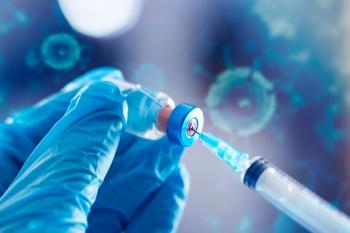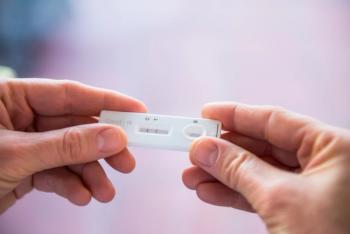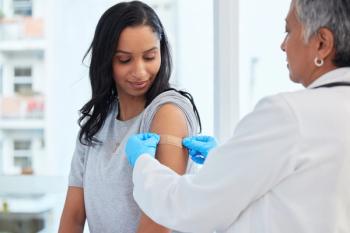
Understanding the impact COVID-19 vaccines have on fertility and pregnancy
A presentation at the 2022 American College of Obstetricians & Gynecologists' Annual Clinical & Scientific Meeting outlined the impact vaccination against COVID-19 could have on reproductive health, fertility, and infant outcomes.
There has been a flurry of fears and side effects linked to COVID-19 vaccination, but to people in their childbearing years, the chances of an impact on fertility and fetal health may carry the most weight.
Three experts sought to outline exactly what impact vaccination against COVID-19 could have on reproductive health, fertility, and infant outcomes during the 2022 American College of Obstetricians & Gynecologists' (ACOG) Annual Clinical & Scientific Meeting held in San Diego, California from May 6-8.1
The session, titled “Fact or Fiction? The Impact of COVID-19 Vaccines on Reproductive Health and Pregnancy” was led by the University of California San Francisco’s Marcelle Cedars, MD, and Stephanie Gaw, MD, PhD; and Alison Edelman, MD, MPH, of Oregon Health & Science University.
Edelman says the panel was inspired to tackle this topic because of how reproductive fears about the vaccine can impact public health.
“The World Health Organization has identified vaccine hesitancy as one of the top 10 threats to global health,” Edelman told Contemporary OBGYN®.
“Prior vaccines have been shown to be safe for reproductive-aged and pregnant individuals, but concerns around reproductive health and COVID-19 vaccines appear to be a significant factor in ongoing vaccine hesitancy.”
The goal of the presentation was to outline the results of a now solid body of evidence addressing concerns with different areas of reproductive health, she says.
“The public’s response to our findings on menstrual health funded by the [National Institute of Health] has been significant; there’s clearly widespread interest in these findings that demands ongoing research,” says Edelman, adding that she and the other presenters were, and continue to be actively involved in ongoing research on these topics. “We have all been bombarded with information and misinformation over the last several years, not to mention the weariness and burnout in providing care during a pandemic; as such, we designed this presentation to provide a useful and practical summary of this evidence to our colleagues at ACOG, in order to help them better care for their patients and address their concerns.”
A highlight of the presentation was the acknowledgment that there do appear to be some temporary changes in the length of menstrual cycles after vaccination, but long-term effects aren’t entirely clear. The menstrual cycle and fertility rates overall fluctuate naturally, and for many reasons like stress and illness. The presenters offered the results of their own ongoing research to put these changes and the effect of the vaccine into perspective using early observations.
According to data cited in the presentation, as of May 2021—about 18 months after the launch of COVID vaccines—there were 95 reports of menstrual irregularities among 72 million women who voluntarily reported vaccine side effects.
By September of that year, that number jumped to 2,301 reports out of more than 100 million vaccinated women participating. In the United Kingdom, reporting was similar with 37,754 out of 48.3 million vaccinated women reporting menstrual disorders as of September 2021. In each of these cases, changes were reported in less than 1% of women, while about 28% of women experienced menstrual changes after acute COVID-19 infection.
The same is true for fertility, the presenters explained, with some slight changes but no severe impact observed after COVID-19 vaccination on female hormone function, egg development, semen quality, implantation, or pregnancy loss. There is nothing in the early data to suggest that the vaccine will lead to long-term or serious reproductive effects, the presenters noted.
In regard to infant health, the presenters also revealed that while there have been reports of preterm birth, infants being born small for gestational age, and neonatal intensive care unit admissions among babies born to mothers who were vaccinated, these levels fell at or below average rates for all births regardless of the mother’s vaccination status. No deaths have been attributed to maternal vaccination.
Meanwhile, the presentation highlighted the vast difference—about 2% overall—in COVID-19 infection rates in pregnant mothers who were vaccinated vs those who were not. Reports have also found that mothers vaccinated during pregnancy transfer antibodies to their infants both in utero and through breast milk.
Overall, the presenters shared a 2022 data comparison published in BMJ outlining the differences in COVID-19 infection vs COVID-19 vaccination in pregnant women. Fertility and miscarriage rates were the same in both populations, but maternal mortality rates and newborn infections or complications were higher in women who contracted COVID-19 during their pregnancy.
These results, however, were similar in frequency when compared to women who were not infected with the virus during pregnancy, and disproportionately affected minorities.
Meanwhile, studies have shown that maternal vaccination during pregnancy was 97% effective at preventing COVID-19 infections in the mother and 89% effective in preventing hospitalization. There is also no evidence that any components of that vaccine are passed to infants from their mothers through breast milk, the placenta, or cord blood.
In terms of timing, the presenters stressed that the best time to get vaccinated against COVID-19 during pregnancy is as soon as possible. To ensure an optimal amount of COVID-19 antibodies are passed to the baby, mothers should be vaccinated roughly 2 months before delivery. Antibodies can still be passed to baby through breast milk with vaccination after delivery, but these antibodies will not be transferred to the infant’s bloodstream.
Reference
1. Cedars M, Gaw S, Edelman A. Fact or fiction? The impact of COVID-19 vaccines on reproductive health and pregnancy. Presented at: 2022 American College of Obstetrics and Gynecology Annual Clinical & Scientific Meeting; May 6 to May 8, 2022.
Newsletter
Get the latest clinical updates, case studies, and expert commentary in obstetric and gynecologic care. Sign up now to stay informed.









